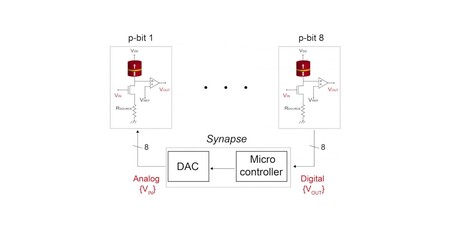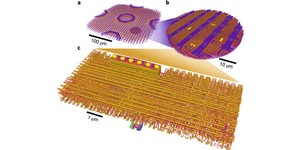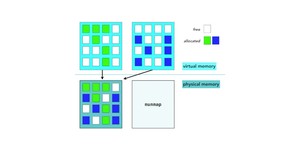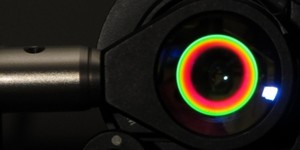Researchers build working probabilistic computer
September 19, 2019 | 12:13
Companies: #purdue-university #tohoku-university

Researchers at Purdue and Tohoku Universities claim to have built the first hardware which allows for quantum-style computation on non-quantum hardware - which they're calling a 'poor man's qubit.'
Quantum computing is regarded by many - including Microsoft, Intel, Google, IBM, and even the UK Government - as the next big breakthrough for the technology industry. Based on quantum bits - qubits - rather than traditional binary bits, quantum computers can potentially solve selected problems considerably more quickly than even the largest of regular computers. Proving true quantum supremacy, though, has been challenging, not least because building qubits and having them operate correctly is hard: The largest quantum computers still have double-digit qubits to their name.
Researchers at Purdue and Tohoku Universities, meanwhile, claim to have an alternative to qubits which may make things considerably easier. Rather than quantum computing, the team has been working on probabilistic computing based on probabilistic bits - p-bits - which were promised by Purdue Professor Supriyo Datta in 2017. Where a true qubit can be both zero and one at the same time, held in quantum superposition, a p-bit is either zero or one but with the ability to fluctuate between the two at a rapid rate.
'There is a useful subset of problems solvable with qubits that can also be solved with p-bits,' claims Professor Datta. 'You might say that a p-bit is a "poor man's qubit."'
The p-bit has a range of advantages over the qubit: Where current qubits need to be chilled to extreme temperatures to operate, a p-bit works at room temperature and is considerably easier to build. To prove that, researchers William Borders, Shusuke Fukami, and Hideo Ohno of Tohoku University produced a modified magneto-resistive RAM (MRAM) component designed to be unstable - and, thus, better able to fluctuate between states. Purdue researchers than combined it with a transistor to control the fluctuations, before building seven more to create a simple eight-p-bit probabilistic computer.
To prove its functionality, the computer was then given a problem known to be well-suited to quantum computers: Integer factorisation, something non-quantum computers can only do slowly and inefficiently. 'On a chip, this circuit would take up the same area as a transistor, but perform a function that would have taken thousands of transistors to perform,' claims Purdue researcher Ahmed Zeeshan Pervaiz. 'It also operates in a manner that could speed up calculation through the parallel operation of a large number of p-bits.'
For now, p-bit computers have the same issue as qubit computers: The need to expand into hundreds or thousands of bits before being able to tackle bigger problems more quickly than a sufficiently-sized traditional computer. The researchers, though, think they are well on the way to achieving that. 'In the near future,' says Purdue postdoc Kerem Camsari, 'p-bits could better help a machine to learn like a human does or optimise a route for goods to travel to market.'
The team's work has been published in the journal Nature.

MSI MPG Velox 100R Chassis Review
October 14 2021 | 15:04








Want to comment? Please log in.